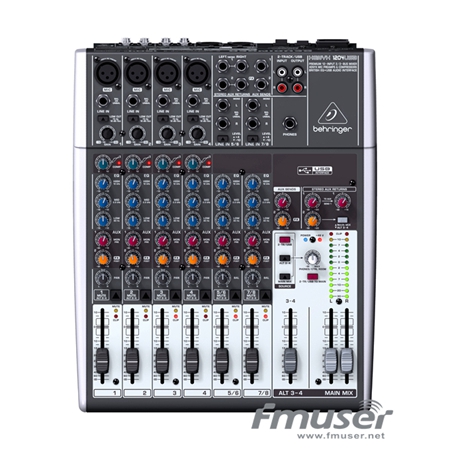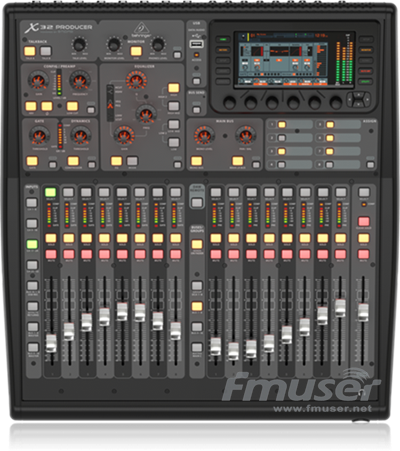Products Category
- FM Transmitter
- 0-50w 50w-1000w 2kw-10kw 10kw+
- TV Transmitter
- 0-50w 50-1kw 2kw-10kw
- FM Antenna
- TV Antenna
- Antenna Accessory
- Cable Connector Power Splitter Dummy Load
- RF Transistor
- Power Supply
- Audio Equipments
- DTV Front End Equipment
- Link System
- STL system Microwave Link system
- FM Radio
- Power Meter
- Other Products
- Special for Coronavirus
Products Tags
Fmuser Sites
- es.fmuser.net
- it.fmuser.net
- fr.fmuser.net
- de.fmuser.net
- af.fmuser.net ->Afrikaans
- sq.fmuser.net ->Albanian
- ar.fmuser.net ->Arabic
- hy.fmuser.net ->Armenian
- az.fmuser.net ->Azerbaijani
- eu.fmuser.net ->Basque
- be.fmuser.net ->Belarusian
- bg.fmuser.net ->Bulgarian
- ca.fmuser.net ->Catalan
- zh-CN.fmuser.net ->Chinese (Simplified)
- zh-TW.fmuser.net ->Chinese (Traditional)
- hr.fmuser.net ->Croatian
- cs.fmuser.net ->Czech
- da.fmuser.net ->Danish
- nl.fmuser.net ->Dutch
- et.fmuser.net ->Estonian
- tl.fmuser.net ->Filipino
- fi.fmuser.net ->Finnish
- fr.fmuser.net ->French
- gl.fmuser.net ->Galician
- ka.fmuser.net ->Georgian
- de.fmuser.net ->German
- el.fmuser.net ->Greek
- ht.fmuser.net ->Haitian Creole
- iw.fmuser.net ->Hebrew
- hi.fmuser.net ->Hindi
- hu.fmuser.net ->Hungarian
- is.fmuser.net ->Icelandic
- id.fmuser.net ->Indonesian
- ga.fmuser.net ->Irish
- it.fmuser.net ->Italian
- ja.fmuser.net ->Japanese
- ko.fmuser.net ->Korean
- lv.fmuser.net ->Latvian
- lt.fmuser.net ->Lithuanian
- mk.fmuser.net ->Macedonian
- ms.fmuser.net ->Malay
- mt.fmuser.net ->Maltese
- no.fmuser.net ->Norwegian
- fa.fmuser.net ->Persian
- pl.fmuser.net ->Polish
- pt.fmuser.net ->Portuguese
- ro.fmuser.net ->Romanian
- ru.fmuser.net ->Russian
- sr.fmuser.net ->Serbian
- sk.fmuser.net ->Slovak
- sl.fmuser.net ->Slovenian
- es.fmuser.net ->Spanish
- sw.fmuser.net ->Swahili
- sv.fmuser.net ->Swedish
- th.fmuser.net ->Thai
- tr.fmuser.net ->Turkish
- uk.fmuser.net ->Ukrainian
- ur.fmuser.net ->Urdu
- vi.fmuser.net ->Vietnamese
- cy.fmuser.net ->Welsh
- yi.fmuser.net ->Yiddish
Live Sound Mixers: Analog vs. Digital – Which Is Right for You?
What Is a Mixer?
Whether it’s analog or digital, modest or massive, every live sound mixer has a specific job to do, which is to take signal from multiple sources, combine them, and send the results to one or more destinations. The way each mixer accomplishes this goal may vary, and the layouts and capabilities differ greatly from mixer to mixer. So while the similarities may outweigh the differences, it’s important to consider the characteristics you can expect from analog and digital mixers and how they’ll matter for specific applications.
Analog Mixers

FMUSER BEHRINGER Analog Mixer
Even in a world of digital technology, analog live mixing consoles have a lot going for them. For starters, they tend to cost less than digital mixing consoles — particularly at the entry-level price point — and even an inexpensive live mixer can reliably handle a wide range of sound-reinforcement applications. Signal flow on even full-scale analog mixers is fairly simple, with inputs hard-wired to corresponding channel strips. All channel processing is literally in-line between the input gain and the output fader, and tweaking channel EQs or adjusting sends is as easy as reaching out and grabbing the control of whichever channel you need to change. Veteran live sound engineers appreciate the visual feedback all these individual controls provide, which allows them to assess and fix signal flow problems very quickly. Once you understand one analog mixing console, you can probably move to another with little or no learning curve.
Analog live sound mixers hold up perfectly for modest and even large-scale sound reinforcement applications, but their limitations become apparent when it comes to touring rigs and technically demanding shows. While the signal flow in an analog mixer is simple, it’s also relatively inflexible, which often requires the addition of switching systems or patch bays. Likewise, the limited or nonexistent onboard signal processing can mean supplementing your mixer with a rack full of outboard compressors, effects, and graphic EQs. Along with the bulky nature of analog boards, this outboard gear can make touring with an analog rig inconvenient. Lastly, analog mixers are more susceptible to environmental factors, such as dusty faders, dirty pots, and bad power that can introduce noise into your sound.

FMUSER Behringer X32 PRODUCER Digital Mixer
Compared with analog mixers, digital live sound mixing consoles are extremely flexible and incredibly compact. By substituting digital signal processing chips in place of costly and bulky analog circuitry, digital mixers can provide you with sophisticated channel equalizers and in-line dynamics, as well as effects and output processing such as graphic EQs. In addition to being generally less noisy than analog mixing technology, digital audio mixing often provides you with advanced routing options and grouping assignments. Since inputs aren’t physically linked to individual channels, you can control a large number of input channels via a handful of faders by arranging them in fader layers. Thanks to network audio protocols such as AVB and Dante, expanding your rig with digital stage boxes and personal monitor systems is an option on many digital boards, and Wi-Fi control may allow you or artists onstage to adjust mixes and settings from mobile devices. What’s more, the ability to copy, save, and recall settings is amazing, particularly if you work with the same band details, they limit your ability to adjust or view channel settings to one channel at a time. Although modern digital mixers provide innovative ways to speed up your workflow, having to select each channel you want to edit can feel cumbersome and limiting if you aren’t used to it. Likewise, layered faders and other in-depth controls may require some familiarity with the board to access, and each digital board is laid out differently.
How to Choose the Right Mixer
The best way to figure out which kind of live sound mixer is right for you is to consider the application. If you’re running sound in a club where different bands play every night and last-minute changes are common, then you may be better off with an analog board. If you’re running sound on tour with a group or a collection of groups where the same band and gear are more consistent, then you may be better off with a digital board.
Maybe you want to know:
1. FMUSER BEHRINGER XENYX X1204USB Premium 12-Input 2/2-Bus Analog Mixer
2. FMUSER BEHRINGER X32 PRODUCER 40-Input 25-Bus Rack-Mountable Digital Mixer

